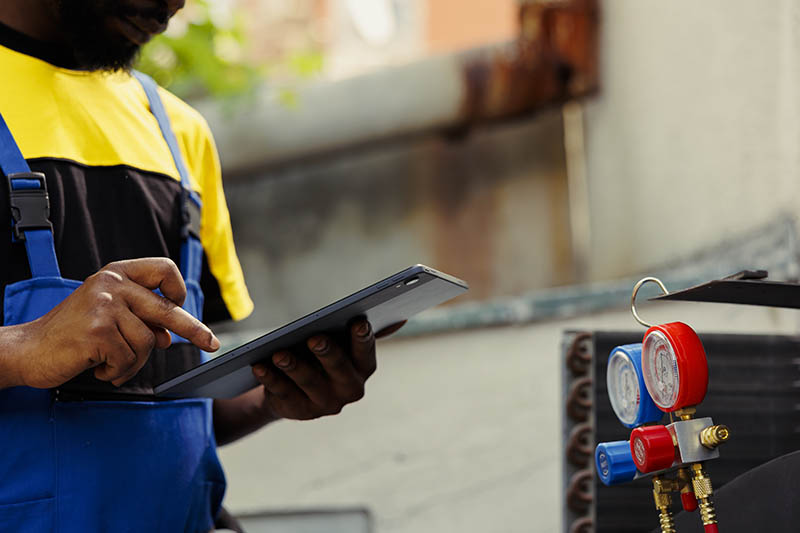A Gas Safety Certificate (also known as a CP12 certificate) is a legal document issued by a Gas Safe registered engineer confirming that gas appliances, flues, and pipework in a property have been inspected and are safe to use. It is a legal requirement for landlords in the UK to obtain this certificate every 12 months and provide a copy to tenants. The inspection includes checks on gas appliances, ventilation, flues, and safety devices to ensure there are no leaks or risks of carbon monoxide. While not legally required for homeowners, the certificate is strongly recommended for safety and is often needed during property sales or insurance assessments.
A gas safety certificate is issued after a gas safety inspection is carried out by a Gas Safe registered engineer. These are qualified professionals who are legally certified to work on gas appliances and systems in the UK. Only engineers listed on the Gas Safe Register are authorised to inspect, test, and certify gas installations. Before allowing any work to be done, you can check the engineer’s credentials by asking for their Gas Safe ID card or verifying their registration on the official Gas Safe Register website. When carrying out a gas safety inspection, Gas Safe registered engineers check a range of things to ensure all gas appliances and systems are operating safely and efficiently. Here’s what they typically inspect:
In the UK, landlords are legally required under the Gas Safety (Installation and Use) Regulations 1998 to have all gas appliances, pipework, and flues in their rental properties checked at least once every 12 months by a Gas Safe registered engineer. After the inspection, the engineer issues a Gas Safety Certificate (CP12) confirming that the gas systems are safe to use. A copy of this certificate must be given to existing tenants within 28 days of the check and to new tenants before they move in. Landlords must also keep a record of the certificate for at least two years. Failure to comply with these requirements can lead to serious consequences, including fines, legal action, or imprisonment. While homeowners are not legally obligated to have a certificate, regular checks are strongly recommended for safety.

Here’s a more detailed explanation of the gas safety inspection process in the UK, outlining what a Gas Safe registered engineer does during a typical visit, particularly in rental properties where annual checks are legally required:
Step 1 – Pre-Inspection Setup
Each gas appliance provided by the landlord (such as boilers, gas fires, cookers, and water heaters) is visually assessed to ensure:
Step 3 – Operational and Performance Testing
The engineer will test the functionality of each appliance by:
Step 4 – Flue and Chimney Checks
For appliances connected to flues (e.g. boilers or gas fires), the engineer will:
Step 5 – Ventilation Assessment
Step 6 – Gas Tightness Test (Leak Check)
Having a valid Gas Safety Certificate is not only essential for safety but also a legal requirement for all landlords in the UK. At KCS Electrics, our team of qualified Gas Safe registered engineers provides expert and reliable services to help you meet this obligation. As a landlord, it is your responsibility to ensure that all gas appliances in your property are inspected annually by a certified professional. Failure to comply can lead to significant fines and legal consequences. Our engineers carry out comprehensive inspections to verify that all appliances are operating safely and efficiently, in full compliance with the latest gas safety regulations. Once the inspection is successfully completed, we issue a valid Gas Safety Certificate, giving you peace of mind and ensuring your property meets legal standards.